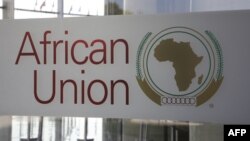The African Union on Tuesday suspended Niger from all of its institutions and activities "until the effective restoration of constitutional order" following last month's coup.
The council of the 55-nation bloc made the decision after mutinous soldiers overthrew Niger's democratically elected president last month and quickly entrenched themselves in power, rebuffing most dialogue efforts. President Mohamed Bazoum, his wife and son have been kept under house arrest in the capital, Niamey.
This was the council's first public communication since it met earlier this month to discuss Niger's crisis. The Council called on all member states and the international community to reject the country's "unconstitutional change of government and to refrain from any action likely to grant legitimacy to the illegal regime in Niger."
The AU commission and the West African regional bloc, ECOWAS were requested to urgently submit a list of members of the the military junta and their military and civilian supporters, including those involved in the violation of human rights of Bazoum and other detainees for targeted sanctions, it said.
People close to Bazoum say his electricity and water have been cut off and he is running out of food. Rights groups say they've been unable to access ministers and political elites who were detained by the junta after the coup.
Until now, Niger was seen by Western countries as one of the last partners in the Sahel region below the Sahara Desert that it could work with to counter a growing jihadi insurgency linked to al-Qaida and the Islamic State group. France and the United States have some 2,500 military personnel in the country.
ECOWAS, which has struggled to beat back a string of coups in recent years, has threatened the use of force if Bazoum is not reinstated. But the deadline to reinstall him came and went with no action. An ECOWAS delegation was in Niamey on the weekend, but officials say talks have yielded little and the junta is ploughing ahead with its own plans, saying it will restore the country to constitutional rule within three years.
The AU did not weigh in on whether it would support the use of military force.
The AU's Peace and Security Council could overrule a military intervention if it felt that wider stability on the continent was threatened by it. Analysts say if it rejects the use of force, there are few grounds under which ECOWAS could claim legal justification.
"While ECOWAS member states approved military intervention to reestablish Mohamed Bazoum into power, the AU remains divided and hesitant about the use of force. There are countries that are opposed to a military intervention," said Rida Lyammouri, senior fellow at the Policy Center for the New South, a Moroccan-based think tank.
The Council urged the military to place the interests of Nigeriens above all else and to immediately and unconditionally return to the barracks, and submit to civilian authorities.







